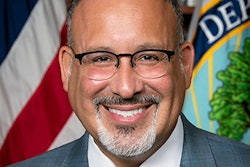When it comes to using state lottery funds to finance scholarships for college, the idea that gambling proceeds are helping the poor pay for their education makes the state-sanctioned games of chance more acceptable than they might otherwise be.
But a deeper look at how state lottery proceeds actually flow to college students shows that lotteries often tend to benefit those who need the money the least at the expense of those who need it the most.
That is one of the key takeaways from a recent policy brief titled “A Gamble with Consequences: State Lottery-Funded Scholarship Programs as a Strategy for Boosting College Affordability.”
The paper—written by Kati Lebioda, a contributing policy analyst for the American Association of State Colleges and Universities—urges policymakers to pause before they accept the premise that lottery proceeds help students pay for college in a way that is beneficial to poor students and the state.
“While lotteries, on the surface, appear to be a positive policy solution to increase revenues and support college access, the literature on the outcomes of state-run lotteries indicates that such programs do not live up to their anticipated benefits on many fronts,” the brief states.
It says many of the factors are “intertwined and amplify one another.”
“For example, the instability and unpredictability of lottery revenues often lead to more stringent eligibility requirements for scholarships, which in turn can result in more funds being disproportionately distributed to the wealthiest families,” the brief states, noting longstanding inequities in academic preparedness between low-income students and their more well-off counterparts.





















